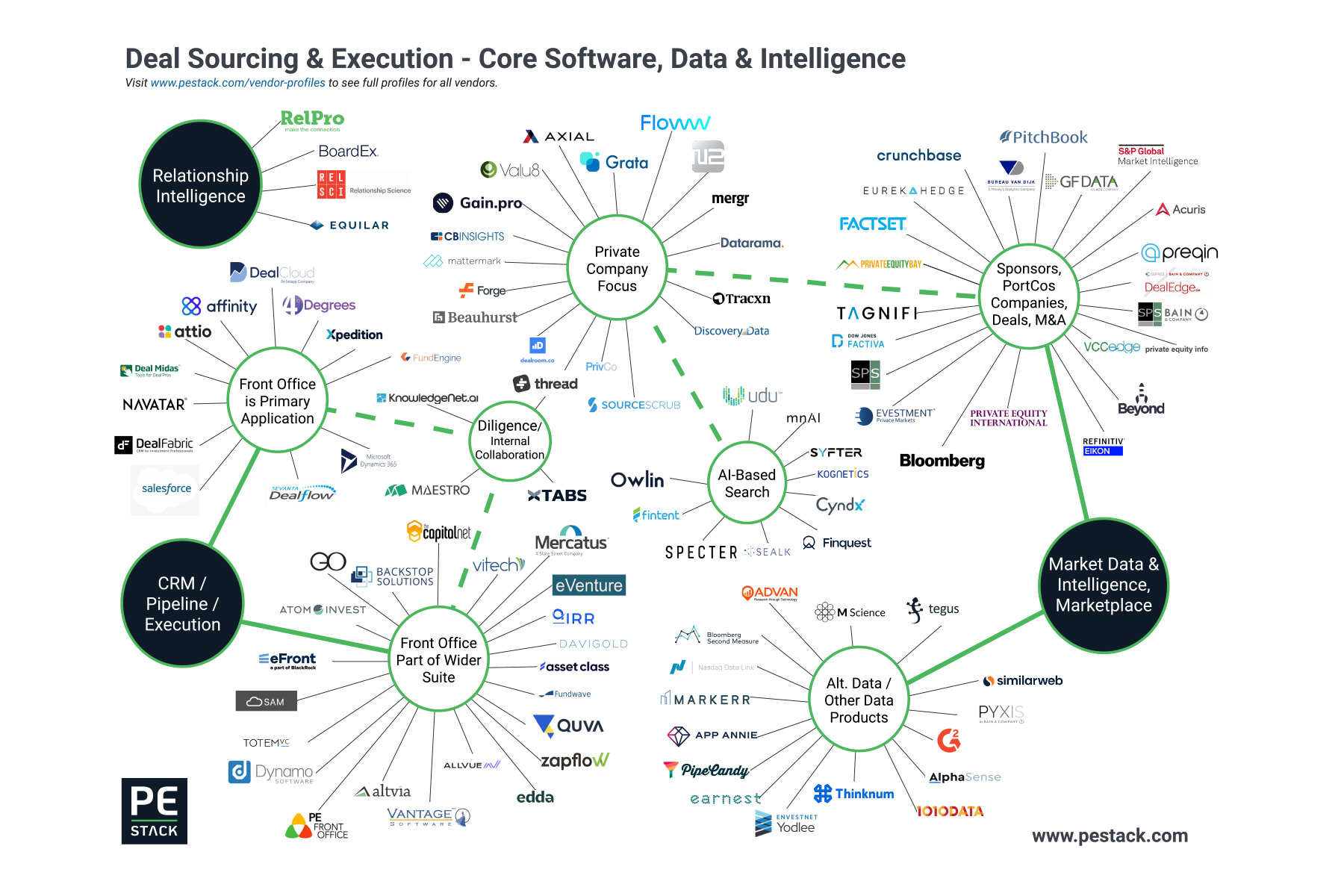PE Stack's solutions map shows all private equity and venture capital specialized technology, software and data vendors providing services in the CRM and wider front office space alongside concise descriptions of the different technologies being used in this area.
How are Private Equity and Venture Capital Tech Firms Funded?
S&P, Preqin and the Death of the Private Capital Silo
Preqin and S&P’s data partnership is the latest in a series of high-profile deals involving private capital specialists and broader financial data and software providers. We have some strong views on this emerging pattern and what it means for end-users, vendors and those doing deals in the financial data and technology industry.
DealCloud and Preqin: What Makes Integration Powerful?
Market data integration is an increasingly important feature for CRM end-users; such partnerships are common in the industry with Preqin and other providers’ data available on a variety of platforms.
With DealCloud joining the list of partners for Preqin data, I want to take this opportunity to examine what makes for a best practice integration project.
“Data Integration is not just a box ticking exercise”
I seriously question whether the people who developed my car’s terrible Bluetooth integration have ever used a cellular phone or operated a motor vehicle. It takes a good 30 seconds to activate, fails to show the name of anything other than the first track I play on Spotify and will sporadically disconnect for no reason. Incoming calls require the pressing of multiple buttons as I urge the caller to be patient and not hang up. Conversely, my wife’s car connects instantly, shows album covers while playing music, and deals with calls flawlessly.
When it comes to integration, not all developments are equal. To avoid frustration down the line, here are some of the key things to look for when assessing the quality of this vital feature:
What is powering the integration?
There are two ways in which data can be pulled into a platform. API integration is best practice, pulling data directly from the source in real time. The alternative is a periodic data dump which can sometimes be easier to develop from a technical perspective, but can be inferior in terms of the timeliness of data if not refreshed often. This might not sound like such a big deal, but for data sets where news can dictate activity it can make a significant difference. For example, a live or near-live feed of Preqin’s LP news can help fundraisers to react quickly to relevant updates which might otherwise be missed with a weekly or monthly refresh.
What data and functionality is being included?
Preqin, Pitchbook and other market data providers maintain numerous datasets, encompassing LPs, GPs, fundraising, performance, deals and more. When considering a CRM, examine the breadth of integration with your favored data provider and the depth of data. A good integration would not see you switching back and forth between platforms due to insufficient detail being carried across. Another related factor is functionality - does the integration allow for the discovery of previously unknown entities via a search on the CRM platform?
What are the subscription terms?
Data providers will often encourage existing clients to add more users, providing added value which is subsequently captured through increased fees. This can naturally cause conflict with CRM integration if there is any chance of a client gaining increased access without paying for it. I don’t see fees around integration as a bad thing if additional value is being offered, but make sure you know what the financial implications of an integration will be as you consider your overall budget and spend. Don’t assume that your single-user data license will translate into an enterprise-wide access via integration on the CRM side.
How is the UX?
I’ve seen a lot of integrations, some are integrated seamlessly into the workflow and work extremely well. I’ve seen some very clunky solutions which, like my car’s Bluetooth, don’t. A key part of the user experience will be how the integration deals with duplication and information asymmetry. You may know more than the data provider about an individual or entity. How is such disparity dealt with on the CRM side? Is there a single sign on process? Will the integration work on mobile? The better the UX, the more the data will be used and the more value it will add.
DealCloud and Preqin
The key point to take is that integration is not a box-ticking exercise and users should examine the quality of this important feature when assessing their providers. Different users will have different priorities, but the integration offered by DealCloud and Preqin appears to be a high-quality, thoughtful development. Data is being refreshed regularly from the live database which is a big plus, the breadth of data on LPs is significant and the functionality on the front end has been carefully considered with involvement from both the Preqin and DealCloud development teams based on feedback from mutual clients.
DealCloud is one of the names I hear most commonly when discussing CRM and is one of the fastest-growing platforms available today. Combined with Preqin’s data, which is especially strong for fundraising and fund investment purposes, this makes for a compelling front office solution.








